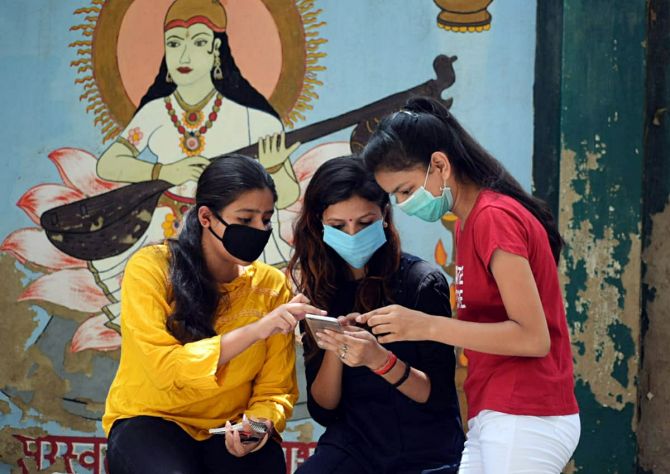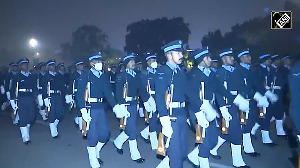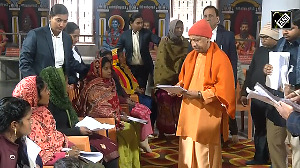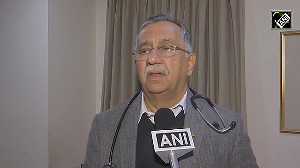India is today the second-largest telecom market in the world with over a billion customers and close to 600 million Internet users.
New connections are available on the tap, calls are virtually free and it's hard to imagine anyone without a mobile phone today.
Globally, there would be few parallels to this success story that truly democratised telephony and empowered a billion-plus people, observes Airtel's Sunil Bharti Mittal.

One thing that everybody acknowledges today is the stellar contribution made by the telecom industry to keep India running during the COVID-19 lockdown and after.
A nation of one billion connected 24x7 by seamless networks at the most affordable tariffs globally is no mean feat. And I take this opportunity to commend everyone across the telecom ecosystem -- the operators and their partners, the government and the regulator for having made this possible.
25 years ago, when the Indian telecom sector was liberalised and players including Airtel emerged on the scene, no one had imagined we would come this far.
Waiting for a few months to get a landline connection was the norm. With the advent of mobile telephony, high call charges and expensive handsets meant that this service was still limited to a select few.
What a transformation it has been over the past two decades-and-a-half, led by private telcos.
India is today the second-largest telecom market in the world with over a billion customers and close to 600 million Internet users.
New connections are available on the tap, calls are virtually free and it's hard to imagine anyone without a mobile phone today. Globally, there would be few parallels to this success story that truly democratised telephony and empowered a billion-plus people.
At Bharti, we are truly proud to have been at the forefront of this revolution. And more importantly, taking India's unique telecom model global with our foray into Africa and South Asia, where Airtel is as much a household name as it is in India.
Today, Airtel is amongst the top three mobile operators globally and serves over 400 million customers, which is more than the population of many large countries.
Over the years, the telecom sector has seen its share of regulatory challenges and legal battles, perhaps, more than any other industry.
One thing I will say is that all this time and resources should have been better spent focusing on serving the customer better and strengthening the network.
Coming back to where we are today, the telecom market is settling down to a 3+1 structure, which I must highlight is important for serving a large market like India.
Over the past five years, in particular, the industry has operated at below cost of providing services and yet ploughed billions into new networks.
Much of these investments have turned into bad debts as several operators have folded up due to a brutal phase of hyper-competition.
The utmost priority today, therefore, must be to make the industry sustainable and build on what has been achieved over these past 25 years.
While some price correction has happened recently it's a long way from where it should be and we need an industry ARPU of at least Rs 300.
If telecom is an essential service, it must not be taxed like tobacco and liquor. And spectrum should not be treated as a source of exchequer, at least in the near to medium term.
This will set the course for enabling the industry to invest in new technologies like 5G and build the foundation for serving a digital India over the coming 25 years.
And it's the 25 years ahead of us that make us at Bharti really excited.
Telecom and ultra-fast, low latency data networks will become all pervasive and be the bedrock of all connected things -- from smart factories and grids to smart homes and even flying cars.
We are already putting in place several building blocks even beyond 5G and ORAN with potential satellite-based networks through ventures likes OneWeb, where Bharti is a controlling shareholder along with the UK government.
As always, our focus will be on delivering best-in-class experience to customers. And we will do this by building an open and vibrant digital ecosystem through strategic investments and world-class partnerships.
To wrap it up, I would add that the Bharti story is a reflection of India's telecom success story of the past 25 years.
We have the distinction of being the only company to have weathered the highs and lows of this phase. I can only express my gratitude to our customers, partners and employees who have supported us all along.
I promise you that we are all charged up for the coming 25 years and will continue to delight you and serve a digitally connected and empowered India.












 © 2025 Rediff.com -
© 2025 Rediff.com -